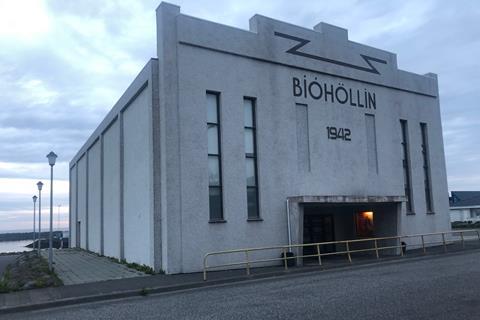
IceDocs – the Iceland Documentary Film Festival – hosted its first industry programme as part of the festival’s fifth edition this year, which ran July 19-23.
Industry speakers included Wouter Jansen from Square Eyes; Brigid O’Shea from Documentary Association of Europe; Helle Hansen, now a consultant and former commissioner at Norwegian Film Institute and Danish Film Institute, Clare Willats, producer and former head of Nordic film at Netflix; Tiago Costa from Cinemateca Portuguesa and Christof Wehmeier from the Icelandic Film Centre.
Against The Tide (India/France), directed by Sarvnik Kaur about two indigenous fisherman in Mumbai dealing with a dying sea, won the festival’s international competition, with a jury including Anne Georget of FIPADOC and filmmakers Petra Seliskar and Krisin Andrea Pordardottir.
A special mention went to In the Rearview by Maciej Hamela. Monika Proba’s Light Years won the Short Film Competition.
The festival opened with Polish filmmaker Bogna Kowalczyk’s Boylesque, a lively portrait of an aging drag queen, and closed with Erik Gandini’s After Work, exploring the concept of work for different people in modern society.
The festival is hosted in Akranes, a village about an hour away from Reykjavik.
Special events included Portuguese archive films projected in the historic Akranes lighthouse as well as a swimming pool screening of local hit reality TV show AEdi, plus a meditative storytelling workshop led by Polish filmmaker Bogna Kowalczyk.
Filmmakers attending the festival also included Mariam Chachia (Magic Mountain), Vlad Petri (Between Revolutions), Matt Sarnecki (The Killing Of A Journalist) and Ali Wajeeh (Under the Sky of Damascus).
Local films screened included Rut Sigurðardóttir’s Skuld, a personal journey of the director and her husband running their own small fishing boat for one year.
Five films in various stages from development to post-production took part in a workshop that connected international industry mentors with Icelandic documentary filmmakers. Those filmmakers were mentored by Spain’s Marta Andreu, sponsored by the Icelandic Film Fund and project-managed by Yrsa Roca Fannberg.
A school workshop encouraged local kids up to the age of 18 to make films during four days of the festival.
IceDocs also fostered a new collaboration with West Iceland Queer Days, which organised Akranes’ Pride Parade also coinciding with the film festival.
IceDocs co-founder Ingibjörg Halldórsdóttir told Screen, “We tried to incorporate pride somehow in programming, we always think about diversity, but we were looking into diversity more deeply this year.”
Halldórsdóttir said the new industry programme was both to connect visiting international industry attendees as well as inspiring the Icelandic film community. “It’s also focusing on giving people tools and the access to professionals who can help them with knowledge sharing,” she said.
She added that in its fifth year, “We’re getting more support from local government sources. And there is an understanding that the festival is growing and it’s important. Now we are at the level where people trust what we are doing.”

























No comments yet